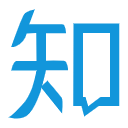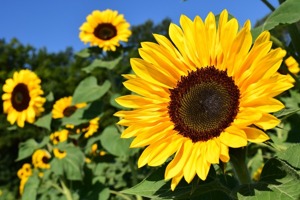1. zerofront,七年级下册英语期末测试题谁有啊?
听力部分(20分)
Ⅰ. 听对话,选择正确答案。(5分)
( )1. Q: What food are they talking about?
A. B. C.
( )2. What language(语言)can Linda speak?
A. Chinese. B. English. C. French.
( )3. What’s Maria’s sister’s favorite festival?
A. Spring Festival. B. Mid-autumn Festival. C. Christmas.
( )4. Q: What time does Helen’s brother get up on Sunday morning?
A. B. C.
( )5. Where were the two speakers?
A. At the post office . B. In the shop. C. At home.
Ⅱ.听句子,选择与其意思相同或相似的句子。(5分)
A. What shape is your present?
B. Which is your favorite season?
C. At the age of twelve, I couldn’t swim.
D. What’s wrong with you?
E. What do you think of the weather in Beijing?
1. __________ 2. __________ 3. __________ 4. __________ 5. __________
Ⅲ.听对话,根据其内容完成下面短文。(5分)
One day I want to go to the East 1 , but I don’t know the way. So I ask a policeman. The policeman tells me to go along the street, and take the 2 turning on the 3 and walk on. He says the park is in 4 of me and it is about 5 minutes’ walk. I thank him for helping me and find the place easily.
1.__________ 2. __________ 3. __________ 4. __________ 5. __________
Ⅳ.听短文,选择正确答案。(5分)
( )
1.In
winter it is very________.A. cool B. warm C. cold
( )
2.We
need _____ sweaters in winter.A. heavy B. light C. cool
( )
3.Every
season is nice. I like _____.A. spring B. them all C. fall
( )
4.The
weather in summer _____ much.A. changes B. do not change C. does not change
( )
5.We
_____ heavy sweaters in spring.A. take off B. take on C. put on
笔试部分(100分)
Ⅰ. 单项选择。(15分)
( )1. Lucy and Lily _____ China next week.
A. is visit B. are visiting C. visit D. visits
( )2. —How do you go to work?
—I usually go to work _____.
A. by a car B. in a car C. on a car D. by cars
( )3. —Must I finish my homework now?
—No, you _____.
A. may not B. mustn’t C. can’t D. needn’t
( )4. They each _____ a CD in their bags.
A. have B. has C. is D. are
( )5. It is a good time _____.
A. sing B. to sing C. singing D. sang
( )6. Find the answer _____ the question, please.
A. of B. with C. to D. for
( )7. — _____ do you go for a picnic?
— Once a month.
A. How long B. How many times C. How often D. How many time
( )8. — _____ will you stay in America?
—About two months.
A. How many B. How often C. How long D. How
( )9. She’s good at _____.
A. read B. reading C. to read D. reads
( )10. —Mum, I’ m going to Ann’ s party this evening.
—_____.
A. Why not B. Have a good time
C. Come back early D. Good idea
( )11. —I’m going to Hawaii with my aunt this month for my holiday.
—_____!
A. Have a good time B. Best wishes to them
C. Thank you very much D. It’s OK
( )12. —Excuse me, which is the way to the post office?
—Sorry. I’m new here.
—_____.
A. Not at all B. Bad luck
C. Thank you all the same D. Thank you
( )13. —Would you like to go for a picnic with us?
—_____, but I’m too busy.
A. No, I can’t B. I’d like
C. Yes, I’d love to D. Why not
( )14. Leo likes _____, but he doesn’t like _____ now.
A. hike; hiking B. hikes; hiking
C. hiking; to hike D. hiking; hiking
( )15. The flowers smell _____.
A. well B. badly C. good D. much well
Ⅱ. 完形填空。(10分)
One day there was an argument (争论) between the wind and the sun. “ I’m much 1 ?than you, ”said the wind.“No, I don’t agree with you!”said the sun. While they were arguing, they saw a man 2 along the road. He is wearing a heavy coat. The sun said to the wind, “Now, let 3 see who can make the man take 4 his coat. Then we will know who is stronger.”?
First the wind tried. It began to blow very hard. It blew 5 hard that the man pulled (拉)his coat around him. The wind was 6 with the man. Then it said to the sun,“Now, it’s your 7 . ” The sun started to 8 on the man. Soon it got very 9 ! The man took off his coat. The argument was over. We know the 10 was stronger now.?
( )1.A. strong B. strongly C. stronger?
( )2.A. walking B. walk C. walks?
( )3.A. we B. our C. us?
( )4.A. up B. on C. off?
( )5.A. not B. so C. such?
( )6.A. sad B. happy C. angry?
( )7.A. way B. turn C. turns?
( )8.A. shines B. shine C. shining?
( )9.A. hot B. hotter C. hottest?
( )10.A. wind B. sun C. man
Ⅲ.阅读理解。(15分)
(A)
One day, Mr. Smith went to a dinner party. He was wearing very old clothes. He came into the room. But people in the room didn’t look at him. They didn’t ask him to sit at the table. He wasn’t happy. But he said nothing.?
Mr. Smith went home quickly and put on (穿上) his best clothes. He went back to the party. Everyone in the room stood up and looked at him. They gave him good food to eat.?
Mr. Smith took off his coat, and put it on the food and said, “Eat, coat!”?
The other people were surprised and asked, “What are you doing? Why do you do that?”
Mr. Smith answered, “I am asking my coat to eat food. When I wore old clothes, you didn’t look at me. You didn’t ask me to sit down. Now I am wearing these nice clothes. And you give me good food. Now I see, you give the food to my coat, not to me.”?
( )1. One day, Mr. Smith went to__________.?
A.a
birthday partyB.a
dinner partyC.an
English partyD.a
movie( )2. When he came into the room, the people didn’t look at him. Why??
A.Because
the people didn’t ask him to come.?B.Because
Mr. Smith wore old clothes.?C.Because
Mr. Smith didn’t say hello to them first.?D.Because
it was night, they didn’t see him.?( )3. Why did he go home quickly??
A.Because
he didn’t want to stay here.?B.Because
he went home for his best clothes.?C.Because
the people there asked him to leave.?D.Because
he didn’t like the food there.?( )4. What’s the meaning of “surprised”in Chinese??
A.高兴的 B.不满的
C.感到奇怪的 D.生气的
( )5. Which statement is right??
A.A
person in good clothes should eat good food.?B.A
good coat should eat good food.?C.We
can’t judge(判断)a man by his clothes.?D.Mr. Smith is stupid(愚蠢的).
(B)
One day a Chinese student went to study English in England. His family name is Sun. It is the same as the word “sun”. England is a country with bad weather. It is often cloudy or misty, and it rains now and again. So the people there don’t get much sunshine in the whole year. When the Chinese student went to London, a tall English policeman with a large face opened his passport to examine(检查) it. The policeman was interested to find the Chinese name “sun” in the passport. He thought it was pronounced just like the English word “sun”,so he said to the Chinese student, “ I see your name is sun. You are wanted here.”?
The Chinese student was greatly surprised. But after a moment the policeman began to smile, “Mr. Sun, you’ve brought sunshine to England! So we don’t want you to go away.”?
根据短文内容,判断正(T)误(F)。?
( )
1.The
Chinese student’s family name is pronounced just like the English word “sun”.( )2.London, the capital of England, is called “The misty city”.
( )
3.In
London, a tall Englishman with large eyes examined the Chinese student’s passport.( )
4.The
policeman in London was interested in the Chinese name “sun”.( )5.Mr. Sun was really to bring sunshine to England.
(C)
It was very cold. It snowed heavily and blew very strongly. It was not a good night to go out. But David had to walk home from work “I can be warmer,” he thought, “I wear my coat backwards①.”He took off his coat and put it on backwards. “That’s much better.”He thought and walked on. About ten minutes later a car hit him. The driver stopped his car and got out of it. He ran to help David.?
Soon a police car arrived. The policeman ran to look at David. “I’m afraid he’s dead.”The policeman told the driver.?
The driver could not believe it.“He can’t be dead.”He cried,“I did not touch him. Look at my car. There is not a mark②on it.”?
“He’s dead.”The policeman said again.?
“I don’t understand it.”The driver said,“As soon as I hit him. I ran to help him. He was lying on the road, but he was breathing and there was no blood③.”?
“Did you touch him?”The policeman asked.?
“Yes,”The driver said,“but I only turn his head around the right way.”?
Notes:
1. backwards adv.反方向地?
2. mark n.印记?
3. blood n.血?
Read the passage and answer the following questions.(阅读短文,回答问题。)?
1. Why was David walking in such bad weather??
______________________________________________________________________________.
2. How did David make himself warmer??
______________________________________________________________________________.
3. Did the driver run to help David??
______________________________________________________________________________.
4. What did the policeman say again??
______________________________________________________________________________.
5. Who killed David??
______________________________________________________________________________.Ⅳ. 词汇。(15分)
(A) 根据句意及首字母提示补全单词。(8分)
1. What is the w _____ like in Beijing?
2. History is my favorite s _____.
3. The students should r _____ some English words every morning.
4. Fall is a h _____ season.
5. D _____ the 25th is Christmas Day in western countries.
6. Maria can p _____ ballet at the birthday party.
7. They sang and danced happily and really e _____ themselves.
8. There will be a heavy snow this evening, and the t _____ will fall below zero.
(B) 根据汉语提示完成下列句子。(7分)
1. Polly can’t _____ _____(计算出) math problems.
2. He felt very tired because he _____ _____ (熬夜) all night.
3. It’s _____(多云) today?
4. They made the cards _____ _____(手工).
5. Look! They are _____ _____ _____(划船) over there.
6. His sister goes shopping _____ _____ _____(每周两次).
7. I bet it _____ _____(一定) fun.
Ⅴ. 句型转换。(10分)
1. There is some rice in the bag. (改为否定句)
There _____ _____ _____ in the bag.
2. Children often have a good time on Children’s Day. (改为同义句)
Children often _____ _____ on Children’s Day.
3. It starts in May, and goes on to July. (改为同义句)
It _____ from May to July.
4. She writes to her mother twice a month. (对划线部分提问)
_____ _____ does she write to her mother?
5. You’d better go to Fuzhou by train. (改为否定句)
You _____ _____ _____ _____ to Fuzhou by train.
6. I like apples. I like bananas, too. (合并句子)
I like apples _____ _____ _____ bananas.
Ⅵ. 补全对话。(10分)
A. 选用方框中所给句子完成对话,有一句是多余的。
A: Hello! May I speak to Bill??
B: Speaking!?
A: Hi, Bill! This is Jane speaking.?
B: Hello! 1
A: I called you yesterday, but nobody answered the telephone. 2 ?
B: I went to the World on Water (水上世界) with my parents.?
A: Really? 3 .?
B: It was great. We saw the dolphin show (海豚表演). It was very wonderful.?
A: That sounds interesting.?
B: 4 .?
A: Oh, the day after tomorrow will be my birthday. 5 ?
B: Yes, I'd love to. Thanks a lot.?
A: You're welcome.?
1.________ 2.________3. ________4. ________5. ________
B. 根据对话内容, 从方框中选出正确的单词或短语补全对话。?
Michael: Hi, Jane. 1 a party in the music hall tonight, would you like to come?
Jane: 2 , what kind of party is it??
Michael: You see the New Year is coming, we hold a party to 3 it.?
Jane: That sounds exciting. What time does it start?
Michael: Half past six, by the way, would you like to 4 something at the party??
Jane: I can 5 ballet, is that OK??
Michael: Sure, it’s great!?
1.________ 2.________3. ________4. ________5. ________
Ⅶ. 综合填空。(10分)
There are four seasons in a year: spring, summer, fall and winter. In spring, the weather is warm. It is a good season for 1 (hike). This is a 2 (hope)season. Summer 3 (come)after spring. It is very hot. The children like to go 4 (swim). It often rains and sometimes it rains 5 (heavy). In fall it is cool. It’s a good time 6 (go)hiking. The farmers are busy 7 (harvest). The 8 (leaf)fall from the trees. Winter is a very cold season in the year. The wind blows 9 (strong). Sometimes it snows, and we can make 10 (snowman).?
1. ________2. ________3. ________4. ________5. ________6. ________7. ________
8. ________9. ________10. ________
Ⅷ.书面表达。(15分)
以My Favorite Festival为题写一篇60个字左右的小短文
My Favorite Festival
_______________________________________________________________________________
听力材料
Ⅰ. 1. W: What festival do you have in China in autumn?
M: We have Mid-autumn Day. It is the time for families to get together. And we eat moon
cakes on that day.
2. M: Linda, can’t you speak English?
W: Yes, I can.
3. W: Maria, what’s your favorite festival?
M: Of course the Spring Festival in China, but my sister likes Christmas best.
4. M: Helen, what time does your brother get up on Sunday morning?
W: He gets up at half past eight on Sunday morning.
5. W: Can you post the letter for me, Tom?I am busy with the house work.
M: OK, Mother. I will go to the post office this aftermoon.
Ⅱ.
1.How
is the weather in Beijing?2.Which
season do you like best?3.I
couldn’t swim when I was twelve.4.What
’s the matter with you?5.What
’s the shape of your present?Ⅲ. W: Excuse me. How can I get to the East Park, please?
M: Well, go along the street, and take the second turning on the right. Then walk on. You’ ll see the park in front of you.
W: How long will it wake to walk there?
M: It’s about twenty minutes’ walk.
W: Thanks a lot.
M: You’re welcome.
Ⅳ. My country has all four seasons: winter, spring, summer and fall. We girls wear different clothes in each season. It’s very cold in winter, so we need heavy sweaters and wool skirts. We like spring. We take off our heavy coats and sweaters then. In spring we wear light(单薄的)skirts. The weather often changes in spring. It’s not too hot and it’s not too cold. In summer we put on light clothing. We need cool clothing. The weather doesn’t change much. It’s always hot. It’s cool in fall. The weather often changes. Girls wear light coats and sweaters them.
Every season is nice. I like them all.
仁爱版英语七年级(下)期末测试卷参考答案
听力部分
Ⅰ.1~5 A B C B C Ⅱ.1~5 E B C D A
Ⅲ
.1.Park
2.second
3.right
4.front
5.twenty
Ⅳ.1~5 C A B C A
笔试部分
Ⅰ
.1.B
next week表示 “下一周”,现在进行时态可以表示将来的计划,又因Lucy and Lily作主语,谓语动词要用复数,故选B2.B
乘小汽车要说by car 或 in a car3.D
回答must引导的一般疑问句;其否定形式要用needn’t。因为mustn’t表示禁止,不允许,而needn’t表示不必,没有必要4.A
注意这里each是同位语,They是主语5.B
It is a good time to do sth. 是固定句型结构6.C
固定搭配be answer to the question这个问题的答案,故选C7.C
how long意为“多长时间”,how many times意为“多少次”,how often意为“多长时间一次”,本句的回答是“一个月一次”,故选C8.C
根据回答about two months是一段时间,故用How long提问9.B
be good at后面只能接名词或动词的ing形式10.B
是一种祝福用语11.A
根据句意是希望对方过得愉快12.C
由前面对话知,问话人没有得到帮助,但出于礼貌应说Thank you all the same.13.C
“Would you like…”是征求某人的意见或同意。回答应是“Yes, I’ d love to.”故选C14.C
like doing sth.表示喜欢这项活动,like to do sth.表示喜欢去做15.C
smell在句中作系动词,接形容词作表语,well作形容词为“味道好”,所以选CⅡ.
1.C
much修饰形容词比较级2.A
see sb. do/doing sth. 看见某人做/正在做某事3.C
let是动词,动词后用宾格4.C
take off意为“脱衣服”5.B
so+adj.+that … 如此……以致于……6.C
be angry with sb. 意为对某人生气7.B
It’s one’s turn. 轮到某人了8.B
start to do sth. 开始去做某事9.A
got在此是系动词,后面接adj.构成系表结构。adj.在此句中应该用原级10.B
根据短文意思得知Ⅲ. (A)
1.B
从短文第一句可知Mr. Smith是专程来参加一个晚餐聚会的2.B
因为Mr. Smith穿着旧衣服3.B
从短文第二段第一句中我们知道Mr. Smith回家穿最好的衣服4.C
动词“surprise”加ed 变成形容词的用法5.C
我们不能只靠外貌衣着来判断一个人,故选C(B) 1~5 F T F T F
(C) 1. He had to go home from work.
2. He put on his coat backwards.
3. Yes, he did.
4.“He’ s dead.”/He was dead.
5. The driver did.
Ⅳ.(A)
1.weather
2.subject
3.recite
4.harvest
5.December
6.perform
7.enjoyed
8.temperature
(B)
1.work
out2.stayed
up3.cloudy
4.by
hand5.rowing
a boat6.twice
a week7.must
beⅤ
.1.isn
’t any rice2.enjoy
themselves3.lasts
4.How
often5.had
better not go6.as
well asⅥ.A. 1~5 D F E A C
B.
1.There
is 2.Sure,I’d love to3.celebrate
4.perform
5.dance
Ⅶ
.1.hiking
2.hopeful
3.comes
4.swimming
5.heavily
6.to
go7.harvesting
8.leaves
9.strongly
10.snowmen
Ⅷ. My Favorite Festival
My favorite festival is Spring Festival. It usually comes in late January or February. Before the Spring Festival, the Chinese people usually give their houses a general cleaning and buy new clothes for children. On the last day of the old year, there is a big family dinner. All members of the family go out to visit their relatives and friends on the first day of the new year.
希望对你有用

2. 骁龙630怎么样?
GPU630采用全新的Adreno 508 GPU,官方宣称比上一代提升30% 的性能,这个提升还是非常客观的。而且新的GPU支持OpenGL ES 3.2, OpenCL 2.0 full,Vulkan, DX12
显示:+ Full HD 1920×1200+ QXGA+ External display support+ DisplayPort and USB Type-C support音频:+ Qualcomm Aqstic™ audio codecand speaker amplifi er+ Qualcomm® aptX™ audio playbackwith support for aptX Classic and HD
CPU这个没有太大的改变,依旧是和626持平的2.2Ghz主频和8核A53芯片+ 8x ARM Cortex A53+ Up to 2.2 GHz+ 14nm process technology
Camera相机支持1300万像素双摄像头,支持2400万单摄像头,并且增加了一堆新的图像处理技术(从820高端系列下放到600系列)+ Qualcomm Spectra 160 ISP+ Dual 14-bit ISPs+ Up to 13 MP dual camera+ Up to 24 MP single camera+ Qualcomm® Clear Sight™ camerafeatures, Hybrid Autofocus, OpticalZoom, Zero Shutter Lag
Video 视频解码4K解码和265HEVC解码,这个还是蛮不错的,625就没有提到HEVC解码的事情……+ Up to 4K UltraHD capture @ 30 fps+ Up to 4K UltraHD playback @ 30 fps+ H.264 (AVC), H.265 (HEVC), VP9
Memory 内存和存储注意,630内存方面的提升是非常巨大的,首先,最高支持1333MHZ主频的8G LPDDR4双通道内存,这个比625系列的DDR3有蛮大提升,但是频率偏低会限制其性能(晓龙660是支持1866mhz)支持UFS,但是鉴于现在UFS缺货且昂贵的情况,估计没几个低端机会上UFS+ LPDDR4, dual channel+ Up to 1333MHz, 8GB RAM+ eMMC and UFS
Charging 充电充电方面支持4代快充!+ Quick Charge 4 technology
Security 安全+ Qualcomm® Mobile Security• Camera Security• App Protect• Qualcomm® Processor SecurityRF Front End (类似于NFC的射频技术?个人不太懂)+ TruSignal adaptive antenna tuning+ High-power transmit (HPUE)+ Envelope tracking technology
Modem 调制解调器
骁龙630支持X12 LTE 调制解调器,峰值下行速率可达 600Mbps,
而原来的625是 :
”X9 LTE with 2x20Mz carrieraggregation+ Cat 7 downlink, up to 300 Mbps;up to 4x 75Mbps LTE streams“
而630是:+ Snapdragon X12 LTE modem+ Downlink: LTE Cat 12 up to 600Mbps, 3×20 MHz carrieraggregation, up to 256-QAM+ Uplink: LTE Cat 13 up to 150 Mbps,Snapdragon Upload+ (2×20 MHzcarrier aggregation, up to 64-QAM)+ Qualcomm® All Mode with supportfor all seven cellular modes, andsupport for:• VoLTE with SRVCC to 3G and2G, HD and Ultra HD Voice (EVS),CSFB to 3G and 2G• Voice over Wi-Fi (VoWiFi) with LTEcall continuity
Connectivity 通信
相比625支持了蓝牙5.0+ Wi-Fi integrated 802.11ac 1×1 withMU-MIMO+ 2.4 GHz, 5 GHz+ Bluetooth 5
Location定位支持GPS, Glonass, BeiDou, Galileo, QZSS SBAS一大票的定位方式,这个625恐怕只支持前三种。对于提升定位速度和精确度来说有很大帮助。+ GPS, Glonass, BeiDou, Galileo, QZSS,and SBAS+ Low Power Geofencing andTracking, Sensor-assistedNavigation
个人还是感觉选骁龙630的机器比较好点
3. 气液增压缸有什么优点?
1、速度快:
1. Fast:
气液增压缸动作速度较液压传动快,且较气压传动稳定。
The action speed of gas-liquid booster cylinder is faster than that of hydraulic transmission and is more stable than that of pneumatic transmission.
2、出力大:
2. High output:
在相同途径条件下,气液增压缸可达油压机之高出力(1~200吨),非纯气压系统可达到。
In the same way, the gas-liquid booster cylinder can reach the high output of the hydraulic press (1 ~ 200 tons), and the non pure air pressure system can achieve.
3、不损模:
3. No loss mode:
先进的“软到位冲压技术,预压行程快速且以极小的力度接触工件表面,整体提高了加工品质和模具使用寿命。
The advanced & quo; soft in place stamping technology can make the pre pressing stroke fast and contact the workpiece surface with minimal force, thus improving the processing quality and die service life.
4、零泄漏:
4. zero leakage:
能量转换方便,可以做到零內漏不必担心环境污染。
Energy conversion is convenient, can achieve zero internal leakage, do not have to worry about environmental pollution.
5、低故障:
5. Low fault:
纯气源驱动(仅需4~7公斤气源压力),无油压系统温升之困扰。

Driven by pure air source (only 4 ~ 7 kg air source pressure), there is no problem of temperature rise of oil pressure system.
6、节能环保:
6. Energy saving and environmental protection:
纯气源驱动,零污染,耗气量仅为气缸的16.3%,耗电/使用成本比油压缸低(实际能耗相当于油压系统10%-30%)。
Driven by pure air source, zero pollution, the air consumption is only 16.3% of that of the cylinder, and the power consumption / use cost is lower than that of the hydraulic cylinder (the actual energy consumption is equivalent to 10% - 30% of the oil pressure system).
7、空间小:
7. Small space:
与普通气缸及液压站相比,气液增压缸占用空间面积可小于50%以上。
Compared with ordinary cylinder and hydraulic station, the space occupied by gas-liquid booster cylinder can be less than 50%.
8、易安装:
8. Easy to install:
法兰板等安装固定,有多种安装方式(正装、倒装、水平安装及任意角度安装等),根据不同工作场合可在任意角度和位置安装。
Flange plate is installed and fixed. There are various installation methods (front installation, inverted installation, horizontal installation and installation at any angle). According to different working situations, it can be installed at any angle and position.
10、易控制:
10. Easy to control:
只需要一个或两个电磁阀控制,可实现手动、脚踏及全自动控制等。
Only one or two solenoid valves are needed to control, which can realize manual, pedal and automatic control.
11、易维护:
11. Easy to maintain:
产品结构简单紧凑,较油压系统等维护简便。
The structure of the product is simple and compact, which is easier to maintain than the oil pressure system.
12、性价比高:
12. High cost performance:
设备单价较油压系统低廉。
The unit price of the equipment is lower than that of the oil pressure system.
13、寿命长:
13. Long life:
正常使用的情况下,平均使用寿命可达5年以上.
Under normal use, the average service life can reach more than 5 years
有了气体增压泵上面的小总结,希望对广大客户有所帮助,如果有什么不理解的或者寻求帮助的请点击我们的网站:http://www.sdjingtuo.com 或者来电咨询,我们会尽全力为您解决
With the gas booster pump above the small summary, hope to help the majority of customers, if there is anything you do not understand or seek help, please click our website: http://
4. 26个字母在单词中的发音规则总结?
1.字母在单词中的读音
1)读字母音[ei ],例如:name [neim] grade [greid] eraser [i'reis] cake[keik] bike [baik] same [seim]table ['teibl] late [leit] favourite['feivrit] face [feis] tape [teip] plane [plein] potato [p'teitu]skate [skeit] make [meik] lake [leik] take [teik] save [seiv]station ['stein] baker ['beik] place [pleis] tomato[t'meitu] safe[seif] gate [geit] snake [sneik] cage [keid] baby ['beibi] paper['peip] famous ['feims] later ['leit] radio ['reidiu] patient['peint]
2)字母A读长音[a:],例如: banana [b'n:n] father ['f:] rather ['r:]
3)字母A读[] ,例如:map [mp] bag [bg] apple ['pl] fax [fks] glad [gld] hat[ht] black [blk] catch [kt] hamburger ['hmb:g] math [mθ] rabbit['rbit] bank [bk] accident ['ksidnt] happen ['hpn] marry ['mri]exam [ig'zm] cabbage ['kbid] passenger ['psind] fact [fkt] parrot['prt]
4)字母A在W后读[]或[:] ,例如:washroom ['wrum] watch [wt] water ['w:t] wash[w] was [wz] Washington ['witn]
5)字母A在S/ n前读[a:],例如:class [kl:s] ask [:sk] past [p:st] basket['b:skit] glass [gl:s] pass [p:s] France [fr:ns] dance [d:ns]fast [f:st] last [l:st] grass [gr:s] headmaster ['hed'm:st]
6)字母A在L前读[:],例如:ball [b:l] wall [w:l] small [sm:l] tall [t:l] all[:l] talk [t:k] call [k:l] walk [w:k] already [:l'redi] although[:l'u] hall[h:l] salt [s:lt] false[f:ls] almost[:lmst] also[:ls]
7)字母A读音例外词:
have [hv] family ['fmili] many ['meni] any ['eni] animal ['niml]madam ['mdm] manager ['mnid]
2.字母在单词中的读音
1)读字母音[i:],例如:these [i:z] we [wi:] evening ['i:vni] be [bi:] even['i:vn] Chinese['tai'ni:z] Japanese[,dp'ni:z] she [i:] he [hi:] me[mi:] we [wi:] metre ['mi:t] Swedish ['swi:di] scenery ['si:nri]eve [i:v]
2)字母E读[e],例如:very ['veri] America ['merikn] vegetable ['veditbl]medicine ['medisin] melon ['meln] second ['seknd] never ['nev]together [t'ge] celebrate ['selibreit] elephant ['elifnt]
3)字母E读[e],例如:ten [ten] spell [spel] pen [pen] desk [desk] egg [eg]welcome ['welkm] let [let] address ['dres] dress [dres] next['nekst] leg [leg] empty ['empti] mend [mend] chess [tes] rest[rest] letter ['let] better['bet] left [left] tell [tel] remember[ri'memb] invent [in'vent] December [di'semb] wet [wet] message['mesid]
4)字母E在ri/ro前读[i],例如:zero ['ziru] serious ['siris] period ['prd]experience [k'sprns] series ['sriz]
3.字母在单词中的读音
1)字母I读 [ai] ,例如:hi [hai] nine [nain] minus ['mains]Chinese['tai'ni:z] fine [fain] licence ['laisns] wife [waif] kite[kait] white [hwait] line [lain] mine [main] beside [bi'said] knife[naif] rice [rais] ice [ais] ride [raid] Friday ['fraidi] write[rait] price [prais] hike [haik] exciting [ik'saiti] lion ['lain]tiger ['taig] quite [kwait] diary ['dairi] science ['sains] invite[in'vait] wine [wain] quiet ['kwait] surprise [s'praiz]
2)字母I读[i:],例如:police [p'li:s] machine [m'i:n] policeman [p'li:smn]magazine [,mg'zi:n]
3)字母I读[i] ,例如:six [siks] think [θik] picture ['pikt] twin [twin]with [wi] drink [drik] chips [tip] swim [swim] sing [si] dinner['din] dish [di] trip [trip] winter ['wint] pick [pik] lift [lift]village ['vilid]
4)字母I在gh前读[ai] ,例如:right [rait] light [lait] bright [brait] flight[flait]
5)字母I读音例外词:river ['riv] give [giv] city ['siti] visit ['vizit]finish ['fini] cinema ['sinim]digital ['diditl] after [':ft]
4.字母在单词中的读音
1)字母O读[u] ,例如:no [nu] hello [h'lu] home [hum] those [uz] over ['uv]phone [fun] open ['upn] so [su] nose [nuz] broken ['brukn] robot['rubt] code [kud] close [kluz] hotel [hu'tel] smoke [smuk] October[k'tub] hope [hup] ago ['gu] Rome [rum] suppose [s'puz] mobile['mubil] notice ['nutis]
2)字母O读[u:] ,例如:who [hu:] do[du:] improve [m'pruv] move [mu:v] lose[lu:z] canoe [k'nu:]
3)字母O读[] ,例如:not [nt] clock [klk] forgot[f'gt] doctor ['dkt] lock[lk] doll [dl] from [frm] sock [sk] shop [p] hot [ht] fog [fg]hospital ['hspitl] job [db] hobby ['hbi] problem ['prblm]dollar['dl] college ['klid] dolphin ['dlfin] soccer ['sk] rock [rk]concert ['knst] song [s] crop [krp] opposite ['pzit]
4)字母O在th/ ve/ n/m前读[] ,例如:one [wn] mother ['m] brother ['br] love[lv] some [sm] money ['mni] glove [glv] other ['] Monday ['mndei]company ['kmpni] another['n] nothing ['nθi] monkey ['mki] front[frnt] month [mnθ] comfortable ['kmftbl] wonder ['wnd]
5)字母I读音例外词:colour ['kl] body ['bdi] woman ['wumn] popular ['ppjul]opera ['pr] post [pust] most[must] both [buθ] pocket ['pkit] lost[lst]
5.字母在单词中的读音
1)字母U读[j u:] ,例如:computer[km'pju:t] excuse [iks'kju:z] student['stju:dnt] use [ju:z] music ['mju:zik] usually ['ju:uli] refuse[ri'fju:z] human ['hju:mn] produce [pr'dju:s] scuba ['skju:b]contribution [,kntri'bju:n] pupil ['pju:pl] universe ['ju:niv:s]huge [hju:d] duty ['dju:ti]
2)字母U读[u:] ,例如:ruler ['ru:l] true [tru:] July [du:'lai] June [du:n]pollute [p'lu:t] rule [ru:l]
3)字母U读[] ,例如:number ['nmb] plus [pls] cup [kp] bus [bs] much [mt]us [s] husband ['hzbnd] uncle ['kl] must [mst] lunch [lnt] hundred['hndrd] hungry ['hgri] jump [dmp] run [rn] fun [fn] discuss[di'sks] pumpkin ['pmpkin] summer ['sm] duck [dk] subject ['sbdikt]suddenly ['sdnli]
4)字母 U在q/g后读[w] , 例如:question ['kwestn] quickly ['kwikli] language['lgwid] quiet ['kwait] quarrel ['kwrl]










